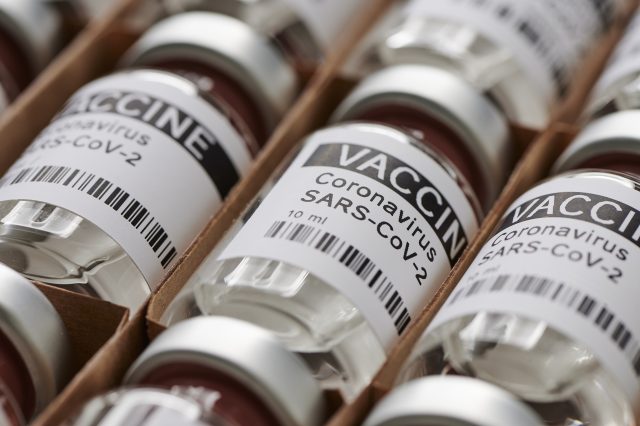News that three vaccines have successfully passed phase three trials and one has already been approved for use in the UK has lifted business spirits, but directors remain wary about the year ahead, according to the latest Confidence Tracker from the Institute of Directors (IoD).
Business leaders’ net optimism in the twelve-month outlook for their organisations shot up from +8 to +24, marking a return to levels not seen since before the first UK lockdown in April, with nearly two thirds (64 per cent) of company directors polled believing that a mass vaccination programme improves their organisation’s prospects for next year.
However, whilst sentiments about the long-term prospects for the British economy picked up sharply, they remained firmly in the red (-31, up from -57), with 56 per cent of business chiefs saying they felt pessimistic about the future. Respondents’ confidence in their own firms also improved (+24), with directors in larger firms tending to be more positive about their organisation’s prospects than those in smaller businesses.
When asked about the biggest risks to business activity, Brexit remains a key concern of directors, coming second on the list of risk factors only to coronavirus. 49 per cent of respondents indicated that the uncertain trading status with the European Union was having a negative impact on their organisation.
At the weekend fears mounted that Britain would emerge from the Brexit transition period without a deal with the EU, as the French dug their heels in over fishing rights and the “level playing field”.
On Sunday negotiators returned to the table in Brussels for one “final throw of the dice” in an attempt to avert a no-deal exit, which the Office for Budget Responsibility has predicted would reduce economic growth by 2 per cent next year while also driving up inflation, unemployment and public borrowing.
The IoD said the results of their survey of 728 members strengthened the case for supporting restricted parts of the economy through the winter, and called for larger grants for firms in supply chains where demand is curtailed by restrictions, alongside more discretionary support for those left out of previous schemes.
The Institute also recommended that the Government boost support for hiring and investment to lay the foundations for a swift economic recovery, as well as providing Brexit vouchers for SMEs to access legal or specialist advice to help them adjust.
“At long last, business leaders have something to aim at. The arrival of a vaccine provides some light at the end of the tunnel,” said Tej Parikh, chief economist at the institute. “The prospect of a recovery makes it all the more important to support businesses for the time being. It would be a crying shame to see viable companies collapse just as the vaccine was round the corner.
“The government has taken important steps, not least by extending the furlough scheme and reinstating insolvency protections. However, sectors that are restricted in the tier system aren’t out of the woods yet, and the grant support should be strengthened. Meanwhile, many of those that have fallen through the gaps of the furlough scheme and SEISS are in a dire situation.
“The government has so far prevented the worst of potential job losses, but unemployment has still risen. Cutting National Insurance would help give directors the extra capacity to create new vacancies and drive jobs growth.
“As we emerge from the twin challenges of covid and Brexit uncertainty, we’ll need to make up for lost time on investment. This may be tricky, demand may not spring back immediately and many firms will have to deal with a debt hangover. Widening SME tax reliefs for productivity-enhancing technology would be a smart move from the Treasury.”
Analysis published today by BDO, the professional services company, revealed the toll that successive lockdowns have taken on the economy after business output fell last month to its lowest level since June.
Output fell by 8.03 points in November to 69.06 points, the lowest level in five months and well below the 95 mark which indicates growth, according to the study.
The services sector drove the decline as many businesses in industries such as retail, hospitality and leisure were forced to shut down. Manufacturing, however, proved resilient, rising by 0.64 points to 90.34 in the month.
7th December 2020.









